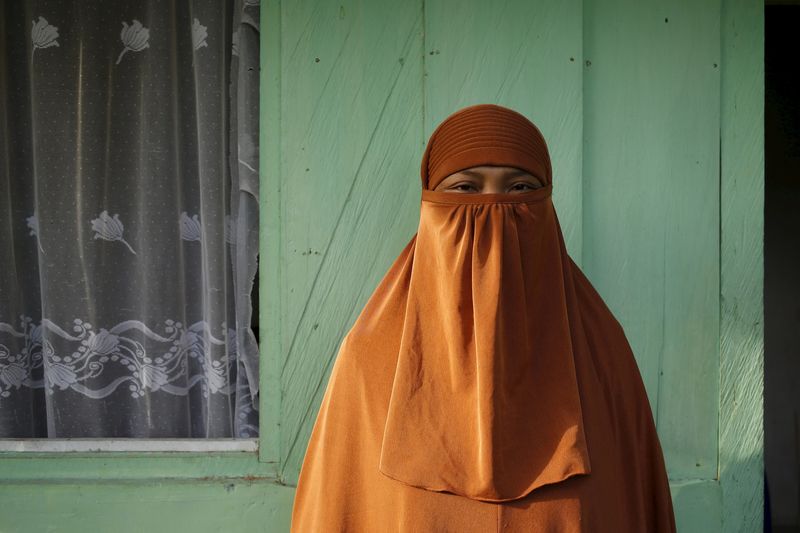By Kanupriya Kapoor and Randy Fabi
POSO, Indonesia (Reuters) - Indonesian forces are mobilising for a manhunt in steamy jungles on the far-flung island of Sulawesi to flush the country's most-wanted man from his hideout and deal a pre-emptive blow to Islamic State. The real threat could be much closer to home.
Militant leader Santoso, the first Indonesian to publicly pledge loyalty to the radical jihadist group that holds swathes of territory in Syria and Iraq, has eluded capture for years. He has until Jan. 9 to surrender.
But while the army girds for action just south of the equator, alarm bells are ringing in the capital, Jakarta.
Raids by security forces across the populous island of Java last week netted several Islamic State supporters and foiled a string of attacks. Police said the men arrested were just foot-soldiers and their leaders are still on the run, plotting attacks on government leaders, officials and buildings.
Sidney Jones, a Jakarta-based expert on Islamist militants at the Institute for Policy Analysis of Conflict, says there is only a slim chance in Indonesia of an Islamic State attack like last month's bloodshed in Paris, but the threat is growing under the government's nose.
"While the police and army have been focussed on going after Indonesia's most-wanted terrorist, Santoso, in the hills of Central Sulawesi, ISIS has succeeded in building a network of supporters in the suburbs of Jakarta," she wrote in a commentary last month, using a common acronym for Islamic State.
She said homegrown militants have mainly targeted the police in recent years, but there may now be a shift back to Westerners and soft targets.
"A DISTANT CALIPHATE"
Australian Attorney-General George Brandis, who was in Jakarta this week to bolster security coordination, told the Australian newspaper he had "no doubt" Islamic State was seeking to establish a "distant caliphate" in Indonesia.
Indonesia was the second most popular tourist destination for Australians in 2014-15, official data shows, with 1.12 million journeys - a large number to the resort island of Bali.
The bombing of two nightclubs in Bali that killed 202 people, mostly tourists, was among a spate of attacks during the 2000s in Indonesia, home to the world's largest Muslim population.
Police have been largely successful in destroying domestic militant cells since then, but they now worry the influence of Islamic State could bring a return of jihadi violence.
Officials believe there are over 1,000 Islamic State supporters in Indonesia. Estimates of the number who have returned from Syria range from 100 to 300, though this includes women and children.
The government worries that Santoso, who has run militant training camps from the tree-covered hills of the Poso regency where he hides and posts videos on radical websites, could be an ideological lightning rod for combatants returning to Indonesia.
Jones told Reuters that Santoso had developed an international reputation in Islamic State circles, with contacts among fighters in Syria.
"This is one of our priorities because there are lots of networks in other areas affiliated with Santoso," said national police spokesman Agus Rianto, adding that authorities could target him because they knew roughly where he was.
SUPPORTERS MOSTLY LOCALS
Idham Azis, police chief of Central Sulawesi province, told Reuters the kitchenware salesman-turned-jihadi has followers across Indonesia but his bedrock of support is in the Poso region.
"Islam should be defended in any way possible even if that means using violence," Adnan Arsal, the head of an Islamic school told Reuters on the edge of the jungle where Santoso is believed to be hiding.
Santoso's militancy sprang from religious strife that swept through Indonesia after the downfall of autocratic leader Suharto in 1998. Poso, an area dotted with Christian churches and Hindu temples, saw some of the most gruesome attacks.
A friend of the militant, Mohammad Guntur, said Santoso had watched as his parents and relatives were killed in communal clashes.
"One of his cousins was impaled like an animal," he said.
In the years that followed, Santoso was known to have liaised with militant networks that carried out many attacks, including the 2002 Bali bombings.
Santoso's wife Suwarni, a 34-year-old mother of three, said Santoso fled three years ago.
"The last thing I remember him saying was to take care of the kids: send them to school, make sure they pray and read the Koran with them," she told Reuters from her wooden shack in a Poso village.
Determined to capture Santoso, President Joko Widodo in March approved the first major military counter-terrorism operation since the bombing of two Jakarta hotels in 2009. A blitz by troops, warships and fighter jets weakened Santoso's forces, but he got away and officials believe he still commands 30-40 men.
Santoso styles himself as commander of the Islamic State army in Indonesia.
However, security experts believe the most serious threat comes from growing support for Islamic State beyond Sulawesi's jungles.

"The thought that Indonesia could be taken over by IS is just absurd," said Hugh White, professor of Strategic Studies at the Australian National University. "But the idea that Islamic State could undertake terrorist operations in Indonesia aimed at destabilising it, that is entirely possible."